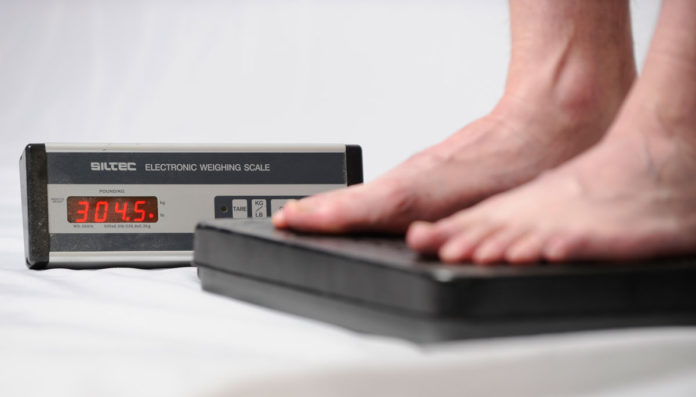Heavy pressures at work seem to predispose women to weight gain, irrespective of whether they have received an academic education. This is shown in a study of more than 3,800 people in Sweden.
“We were able to see that high job demands played a part in women’s weight gain, while for men there was no association between high demands and weight gain,” says Sofia Klingberg, a researcher in community medicine and public health at Sahlgrenska Academy, University of Gothenburg, and the study’s lead author.
The basis for the article, published in the journal International Archives of Occupational and Environmental Health, was the Västerbotten Intervention Program, a Swedish population-based study. Klingberg’s study included 3,872 participants in this program.
In just over half of the women who had been subjected to high demands, a major increase in weight took place over the 20 years. This gain in weight was some 20 percent higher than in women subject to low job demands
The women and men in the study were investigated on three occasions over a 20-year period with respect to such variables as body weight and demands and control at work. They were followed either from age 30 to 50 or from 40 to 60.
To estimate the level of job demands, the respondents were asked about their work pace, psychological pressures, whether there was enough time for their duties and how often the demands made were contradictory.
The questions about control at work covered such matters as how often they learned something new; whether the job called for imagination or advanced skills; and whether the respondent was personally able to choose what to do and how to do it.
The results show that the respondents with a low degree of control in their work more frequently gained considerable weight, defined as a weight gain of 10 percent or more, in the course of the study. This applied to women and men alike.
On the other hand, long-term exposure to high job demands played a part only for women. In just over half of the women who had been subjected to high demands, a major increase in weight took place over the 20 years. This gain in weight was some 20 percent higher than in women subject to low job demands.
“When it came to the level of demands at work, only the women were affected. We haven’t investigated the underlying causes, but it may conceivably be about a combination of job demands and the greater responsibility for the home that women often assume. This may make it difficult to find time to exercise and live a healthy life,” Klingberg says.
Having had or not had an academic education does not explain the associations in the study. Neither do quality of diet or other lifestyle factors. However, the information about dietary intake comes from the respondents themselves, with a certain risk of incorrect reporting.
At the same time, given the problems associated with work-related stress, the study is relevant in terms of public health. The researchers think identification of groups who are susceptible to stress and efforts to reduce work-related stress would likely achieve a decrease not only in weight gain but also in the incidence of ill health, including cardiovascular disease and diabetes.


